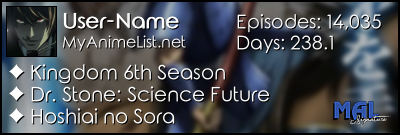Reinhardt doesn't look good. Without any opponents, he is just immobile and bored. I have felt that in many times, particularly when I finish a strategy game. After one subjugates all of the map, the only question remaining is "Now what?", while my eyes stare blankly to the monitor depicting a glorious united empire. But without the thrill of the conquest... That's why people like Oberstein are essential. Any hero needs someone who he can place in charge of the administration and let him transform the will to battle into a will to govern. In any way, sometimes it's better to end everything at the prime than to languish for many years.
It was endearing to see Schenkopp ruling out his daughter for the recapture operation. I'm sure he would know she would be very upset by that decision, but that sudden manifestation of fatherly love was something I couldn't overlook. Now for the main dish...
After a dozen episodes, I still do not understand why does Yang Wenli keep on fighting against the Empire. Attenborough said that they were fighting out of pure foppery and whim, and even Yang himself recognized that not much was likely to change for good if Reinhard were to be defeated.
I see that much of Yang's support steams from the dichotomy between democracy and autocracy. Though the government with appropriate representation and control of the executive is the most reasonable choice for most states, it's difficult to rule out that autocracy has in itself some redeeming qualities.
To start with, no one but a fool could turn a blind eye to the structural reforms that the reign of Reinhard has brought to the Empire, the most important of them being the reformation of the nobility and the suppression of many of their privileges. That, from the beginning, ensures that a meritocratic system can be applied (and has actually been applied by the Kaiser since the first day of his reign), meaning that the obsolete blood rights are scrapped for good in favour of a most reasonable approach to power and privileges.
Second, Kaiser Reinhard is still young. Being an illustrated despot, it's assured that his government will continue reforming the old system to make it more beneficial to the people, and if he lives long, those reforms would be so engrained into the system that undoing them would be met with fierce resistance by the people.
As a history lover, I must take into account a very powerful example for us: the fall of the Roman Republic. It once was the best example of the rule by the people (so much that it served as an example for many governments even a millennium or two after its fall), but by the year 50 b.C it was just the shadow of it's former glory. Long past were the times of powerful men like the Scipios or reformers like the Gracchus, and only rotten apples were sitting at the Senate and wearing purple togas.
I'm sure that most of you will remember that from your History classes, so I'll save you the dissertation. What I want to focus is about it's current state and how did it gave birth to the most influential empire of all times: the Roman Empire. Emperor Augustus was no doubt a very smart and even virtuous man, which restored the former glory that Rome once had after its long war against Carthage. He was a man who revitalized the nation and brought forth many changed whose effects can still be felt today. No one could deny the the need for a man like Augustus that the Roman Republic had in its last years, torn apart by corruption and civil war, whose efforts earned him the rightful title of Pater Patriae by the Senate.
Reinhard and Augustus are similar men. Both of them are warriors, and of great intellect. Both of them were in charge of uniting a Nation (Rome and humankind) and create a better system than the one they fought against. Both of them did radical reforms which greatly increased the well-being of people. There are many more matching points that I will not expose here for the sake of time, but will leave to your consideration.
As necessary as it was, Augustus reign ended, and was succeeded by Tiberius. Many of you will also remember the bloodshed of the Julio-Claudian Dynasty, so I will not delve deep into that. But anyway, the end of the Julio-Claudian wasn't the end of the reforms brought forth by Augustus.
What I'm trying to get across is that autocracy is sometimes necessary. Before Augustus rise to power, the Roman democracy was rotten, corrupted and degenerated, and only fools would still advocate for the same principles that brought them into that situation. Those problems could only be resolved through the enthronement of a heroic new emperor, which knew how to hold them tight through his life. Yes, it is true that Augustus' heir, Tiberius, was a cruel man, though not many know that the best heirs for Augustus died long before him, almost everyone of them by palatial deceptions and internal disputes, and also by influence from his wife, Livia Augusta. For the meantime, it isn't likely for Hilda to turn into a Livia, and the Earth Cult could be disposed of after the subjugation of the galaxy, so no hard sweat on that part.
Now that a mention a heir, it is not always true that the immediate heirs of the heroic emperors are a degeneration of them. Through the proper care and education, they can carry on the achievements of their predecessors. For instance, we have emperors Vespasian and his son Titus, or the five good emperors, which all had exceptional heirs (except from Marcus Antonius and Titus himself). Even so, I must recognize that these great works can come crumbling down due to the wrong of one heir, like happened with Domitian and Commodus.
Even cruel heirs do not mean the disappearance of great progress, as Tiberius and Caligula did not undermine the advent of Claudius, or Nero with Vespasian, or Domitian with the five good. All in all, with the best men to lead them, every empire can retain its days of glory.
Taking into account all of the stated above, in the meantime, there is no reason to oppose the rule of Kaiser Reinhardt von Lohengramm. "In every time, in every age, the deeds of men remain the same" is something that many appear to have forgotten. The flow of History is unstoppable and thus it is useless to stand against it, and no one more than Yang, an historian, should know that better. |








